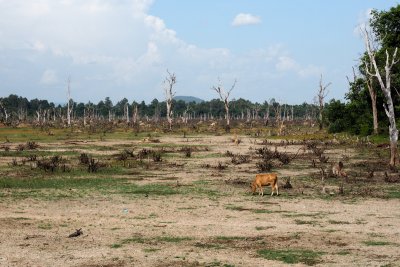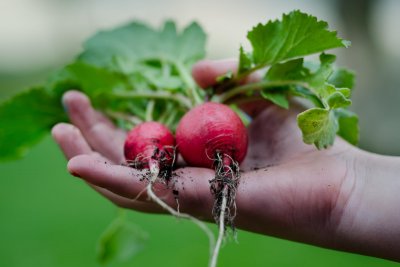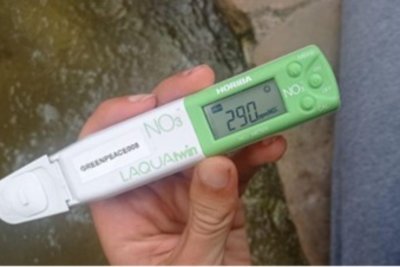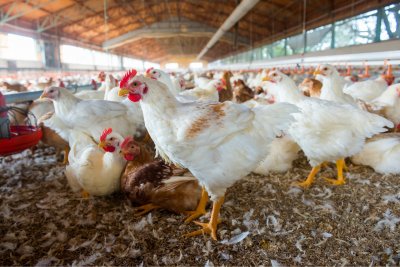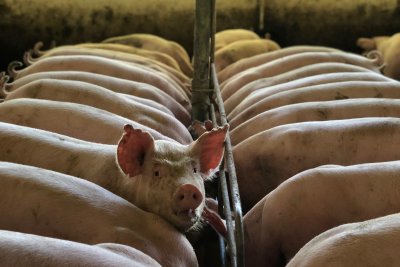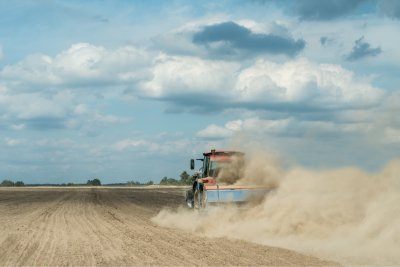 Red arrow going up with shopping trolley on it. Copyright: Ink Drop | shutterstock
Red arrow going up with shopping trolley on it. Copyright: Ink Drop | shutterstock
UK household food bills set to go up by £407 in 2022 due to climate change, oil and gas prices
In September 2022 UK food price inflation rose above 14%, the biggest increase on record. Furthermore, UK food security is being threatened by a combination of extreme weather, higher costs for energy and other inputs, and British farmers struggling to find workers. Some are reportedly choosing not to plant crops to save money, thereby reducing UK food production.
A report released today by the Energy and Climate IntelIigence Unit has found that the average UK household will pay £407 extra for food in 2022 due to the impacts of climate change and oil and gas prices. The report outlines that £170 of this is due to the impacts of climate change, and £235 due to oil and gas price rises.
Climate change and oil and gas prices drove the majority of food price inflation (88%), with total food price inflation running at 14%.
The report Climate, Fossil Fuels and UK Food Prices was produced by researchers from the universities of Bournemouth, Exeter and Sheffield who looked at fossil fuel price rises and the rise in global temperatures relative to a 1950-80 baseline, to calculate the impact on food prices.
The record breaking heatwave that hit the UK this year was made ten times more likely due to climate change, and the drought it contributed to could lead to potato harvests falling by 50%. In western Europe the drought was made at least 20 times more likely by climate change and affected crops in a range of countries.
Meanwhile, record-breaking flooding in Pakistan in June killed more than 1700 people and displaced millions. Flooding was also likely worsened by climate change, according to the World Weather Attribution Service. As well as the devastating impact on Pakistan, the floods could impact UK food security, as Pakistan is the UK’s second largest supplier of rice after India.
“Imagine taking six trolleys of weekly shops through the checkout. That’s how much extra households are paying for food this year due to gas prices and climate change. Like families, the farmers who grow our food are being put under pressure by drought, and by the high cost of fertilisers which are made using gas. Better protecting our soils, planting trees and hedgerows to protect against extreme rainfall and shifting to low-carbon fertilisers are non-negotiables if we want our farming to become more resilient and ultimately to protect our food security.”
The UK Government’s 2021 food security report concluded that climate change and biodiversity loss are among the biggest risks to global food security, with extreme weather affecting yields in the UK and overseas, increasing the spread of pests and diseases.
"More and more people are struggling to afford food as prices soar while charitable food aid providers are struggling to cope with rising demand. The Government must address the root causes of food price increases as well as mitigate their effect on household incomes through a cash first approach to growing food insecurity
Ruth Westcott, Climate and Nature Emergency Coordinator at Sustain said:
"We have known that extreme weather is damaging crops and affecting food security for a while, but now we can see - in pounds and pence - the price that households are paying thanks to the damage caused by the climate emergency. We can't afford government inaction any longer. Our food system is responsible for a third of UK emissions but has decarbonised at half the pace of the wider economy and agriculture hasn’t decarbonised in over a decade. We now need a land use framework which sets out a transition away from intensive animal agriculture, to more protein from plants, and a farming subsidies system which helps make farming part of the solution to our climate and nature emergency, not the cause."
You can read the report in full here:
Climate Change and Nature: Sustain has taken a keen interest in the rapidly accumulating evidence about the effect of food and farming on climate change and nature, as scientific evidence emerges that our food system is a very significant contributor to greenhouse gas emissions and biodiversity loss.
Sustain
The Green House
244-254 Cambridge Heath Road
London E2 9DA
020 3559 6777
sustain@sustainweb.org
Sustain advocates food and agriculture policies and practices that enhance the health and welfare of people and animals, improve the working and living environment, promote equity and enrich society and culture.
© Sustain 2024
Registered charity (no. 1018643)
Data privacy & cookies


